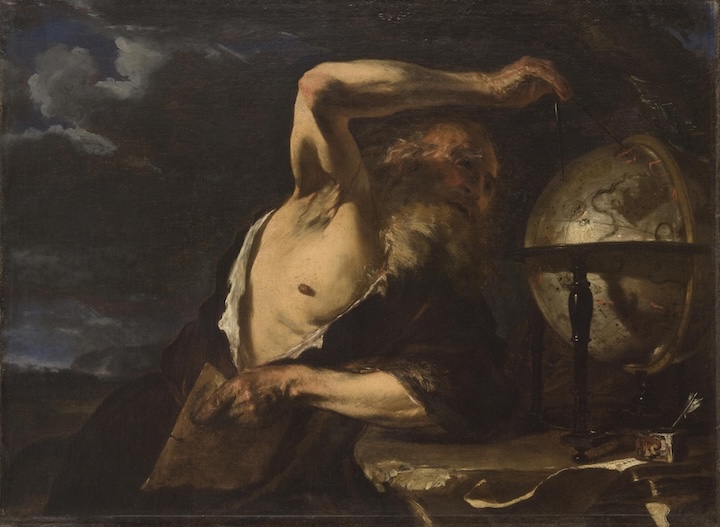My sense is that we are passing through a difficult time in the Church (for agnosticism is always difficult), and that many Catholics, especially in the Western countries of traditional Christendom, are discouraged.
I do not present this as a criticism of the pope, or of any of the “Princes of the Church,” for my sense is that they are as confused as we are, and given to miscalculation. If one is Catholic, he is obliged to pray for them; even to pray for their conversion.
The odd temper tantrum might be forgivable, provided, perhaps, that one prays when he recovers his peace of mind; but this is to make a very human calculation.
As my spiritual guru, the late Jonathan Robinson of the Oratory, used to explain, the religion of humanity is not a human religion: “One of the greatest obstacles to human freedom in the modern world is the denial of the Christian affirmation that each individual is created and sustained by God.”
The removal of God from the human consciousness, and its systematic replacement by a “God of humanity,” was perhaps the most successful propaganda stunt of the Enlightenment.
Compared to this, a mere lapse into atheism would have been less significant. It would have left a hole into which divine nature could easily re-enter. Black holes have their own curious function in the universe, apparently providing the gravitational means to anchor a galaxy; a hole in the soul might perform a similar function.
The physicists are just discovering that the matter that has disappeared into a black hole has, when considered more inclusively, still not gone away.
We seem to live in a universe that doesn’t allow that.
Yet the Enlightenment propaganda had some effect. We were convinced that we were made free by the maneuver, when in fact we were only desolated by it. For soon enough we discover that there was no “God of humanity,” not because he has been negated but because he never was. The agency that created the human was not the human’s to create.
Encouragement suddenly begins on the flip side of this argument. He who, not being able to create, cannot destroy, either, or even begin to grasp the immensity; and what cannot be destroyed is moreover beyond even the wish, if not the capacity, of God to destroy.
I am partial to the pre-Socratic, Anaxagoras, for he was charged with impiety, as were Protagoras, Socrates, and Jesus of Nazareth, as time moved on. Anaxagoras provided the philosophical notion of NOUS, whether at large in the universe or at small in the living individual – the cosmic ordering MIND.

His fragments suggest a comprehension of something like the Big Bang, the rotations of celestial objects, the progression of living things and their “panspermia” – or tendency to distribute. The NOUS separates like from unlike, then recombines in likeness. Anaxagoras gave good accounts of eclipses, meteors, the sun, irradiations, shadows, rainbows, &c.
He stood in the world, and contemplated it, and made it more vivid by his contemplations. But what do I mean by this “standing in the world”?
In contradistinction, though finally in agreement with advanced quantum physics, I would call this “the stability of things.” The contemplation of it begins from the reality that we are currently inhabiting. It does not go away. Call this the essence of Realism.
It does not go away. Only we can go away. Except, THAT is probably an illusion.
Here I like to quote the late Polish poet, Czeslaw Milosz, my ally in the fight against Enlightenment propaganda:
A true opium of the people is a belief in nothingness after death: the huge solace of thinking that for our betrayals, greed, cowardice, murders, we are not going to be judged.
This has been for centuries the promise of the Enlightenment, and (not ironically) the source of our desolation. We are promised a nothingness that the God of humanity cannot deliver. We get only nihilism, which, unfortunately, is a SOMETHING we would have been better off without.
For indeed, in the most recent recensions of this propaganda, we can be condemned for nothing EXCEPT making judgements. It is, as it were, the final attempted suicide, or self-cancellation, of Nominalism, whose descent since the 14th-century was mentioned in this space on Wednesday.
But what do we have when we have shaken off our “enlightened” desolation?
Something quite marvelous may immediately take its place, for we begin to see an inhuman way forward.
There is a mnemonic for this, by the 17th-century English poet, Edmund Waller:
The soul’s dark cottage, battered and decayed,
Lets in new light through chinks that time has made.
We begin to see what we have been avoiding, from a kind of fear that has been dispersed: a fear of things Unreal, for instance, NOTHING.
There will be time to fill, in our stolid, material lives, and it could be filled wisely with prayer, and with an important adjunct of prayer, which I should call education.
For just as the “enlightenees” could not make God disappear, but tried to conceal him behind an imaginary “God of humanity,” the reverse process may necessarily follow. We will set about replacing this false God with the real one.
Alas, this is not an instantaneous thing. It took us years to work up our present desolation; it will take more years to overcome it. Verily, “unlearning” is an important part of learning, for our ignorance is overlaid.
My own instinct is for “education through art,” by which I would go rather beyond the cliche of finger-painting. The way into Plato’s three transcendentals – the Good, the True, the Beautiful – is most immediately through the third, Beauty.
This is also the way into the Holy Mass, but for persons unacquainted with the glorious Catholic liturgical heritage, beauty must be found wherever it is occluded. To the mind set free, it will teach.















